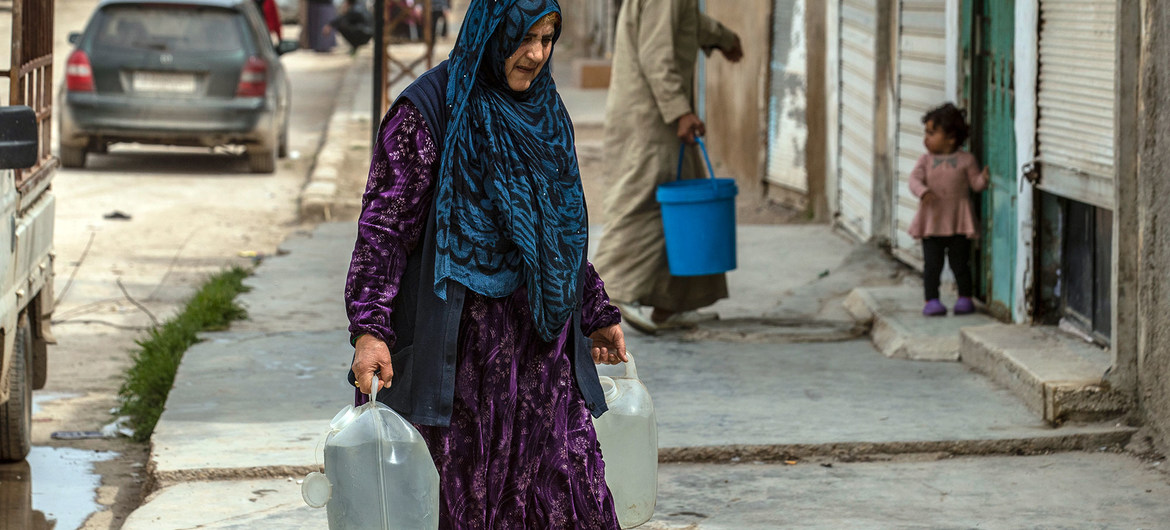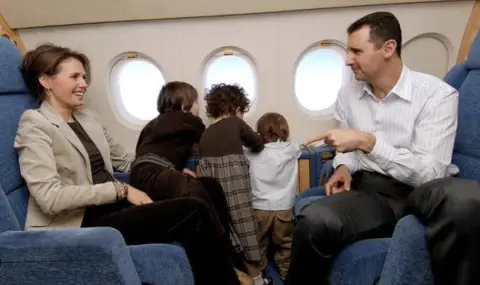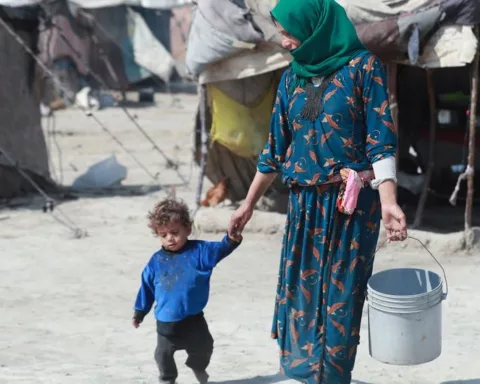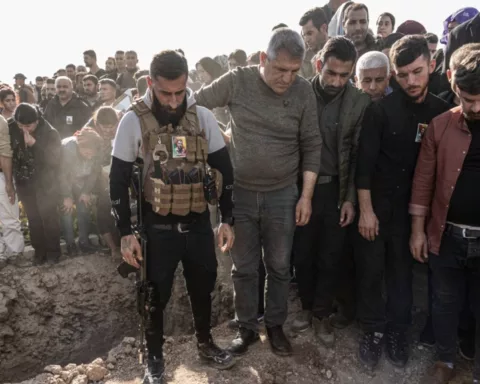Speaking via videoconference, Humanitarian Affairs chief Mark Lowcock said that millions have been left displaced, impoverished, traumatized and suffering “deep personal loss”.
Moreover, a declining economy, COVID-19, rising food insecurity and malnutrition, are causing the overall number of people in need to soar.
He thanked donors who are helping to assist families through winter, detailing that distribution is underway to reach more than three million of the neediest while lamenting that “current funding…will only allow us to reach 2.3 million”.
More is needed”, Mr. Lowcock underscored.
Coronavirus shock
Although limited COVID testing has rendered the outbreak impossible to assess in Syria, hospital beds are at full capacity in several governates and school cases more than tripled during November, according to the relief chief.
“Beyond the immediate health impact, we are extremely worried about the secondary effects of the pandemic, including on access to education”, he said.
Mr. Lowcock pointed to an analysis by Save the Children that cited COVID-19 and rising poverty in estimating that two thirds of children in northern Syria are out of school.
Economic decay
The humanitarian chief painted a picture of an economic crisis that has left subsidized bread and diesel in short supply – despite both having doubled in price since September.
“The market price of a standard reference food basket is higher than at any point” since the World Food Programme (WFP) began price monitoring in 2013, he said, noting that more than 80 per cent of displaced families across Syria say that their income does not cover their needs.
He illustrated its impact on the most vulnerable in the northwest as being dire, noting a five per cent increase in child stunting and that 37 per cent of displaced mothers are malnourished.  WFP/Khudr AlissaPeople in the conflict-affected town of Deir Hafer in Syria rely heavily on food assistance from WFP to meet their daily needs.
WFP/Khudr AlissaPeople in the conflict-affected town of Deir Hafer in Syria rely heavily on food assistance from WFP to meet their daily needs.
Essential access
Turning to humanitarian access, Mr. Lowcock profiled the vulnerability of humanitarian operations in the north-east.
“When aid is suspended, those most in need are the ones who suffer”, he said. “International humanitarian law requires that all parties allow and facilitate the rapid and unimpeded passage of humanitarian relief for civilians in need”.
He updated that last week, a kerosene cooker sparked a campfire that tragically claimed the lives of three children in Al Hol, saying. “it is simply no place for…tens of thousands of children to grow up”.
Mr. Lowcock also outlined the importance of safeguarding infrastructure, which is “indispensable to civilians’ survival”, and underscored that technical teams need “safe access…to water and electricity installations” to provide uninterrupted supplies of both.
Political solution required
Meanwhile, Special Envoy Geir O. Pedersen pointed out that after nearly 10 years of conflict, the political process has not delivered for the Syrian people, who “continue to suffer deeply” both inside and outside of the country.
“Only a political solution can end this suffering, and prevent renewed conflict and instability, protecting Syria’s civilians and the region from further grave danger”, he spelled out.
A relative calm since March and a Constitutional Committee are both bases to be built upon, he said.
Looking ahead
Looking toward 2021, Mr. Pedersen elaborated on the need for a nationwide ceasefire, substantive constitutional drafting and “a wider effort to address the full range of issues, with actions to build confidence and movement, step for step”.
“This needs a new form of international cooperation on Syria, with key players at the table and key issues on the table”, he asserted.
Against the backdrop of deep divides in Syria, the region and internationally, the UN envoy acknowledged that forging a consensus on how to bring about mutual and reciprocal steps and constructive Syria diplomacy “is proving very difficult”.
“But I am convinced it is possible, and that there are common interests that make it so”, he upheld.
The Special Envoy concluded that with the Council’s support, he would continue to take stock, engage the Syrian parties and international participants to identify new and additional ways to move the process forwards.






